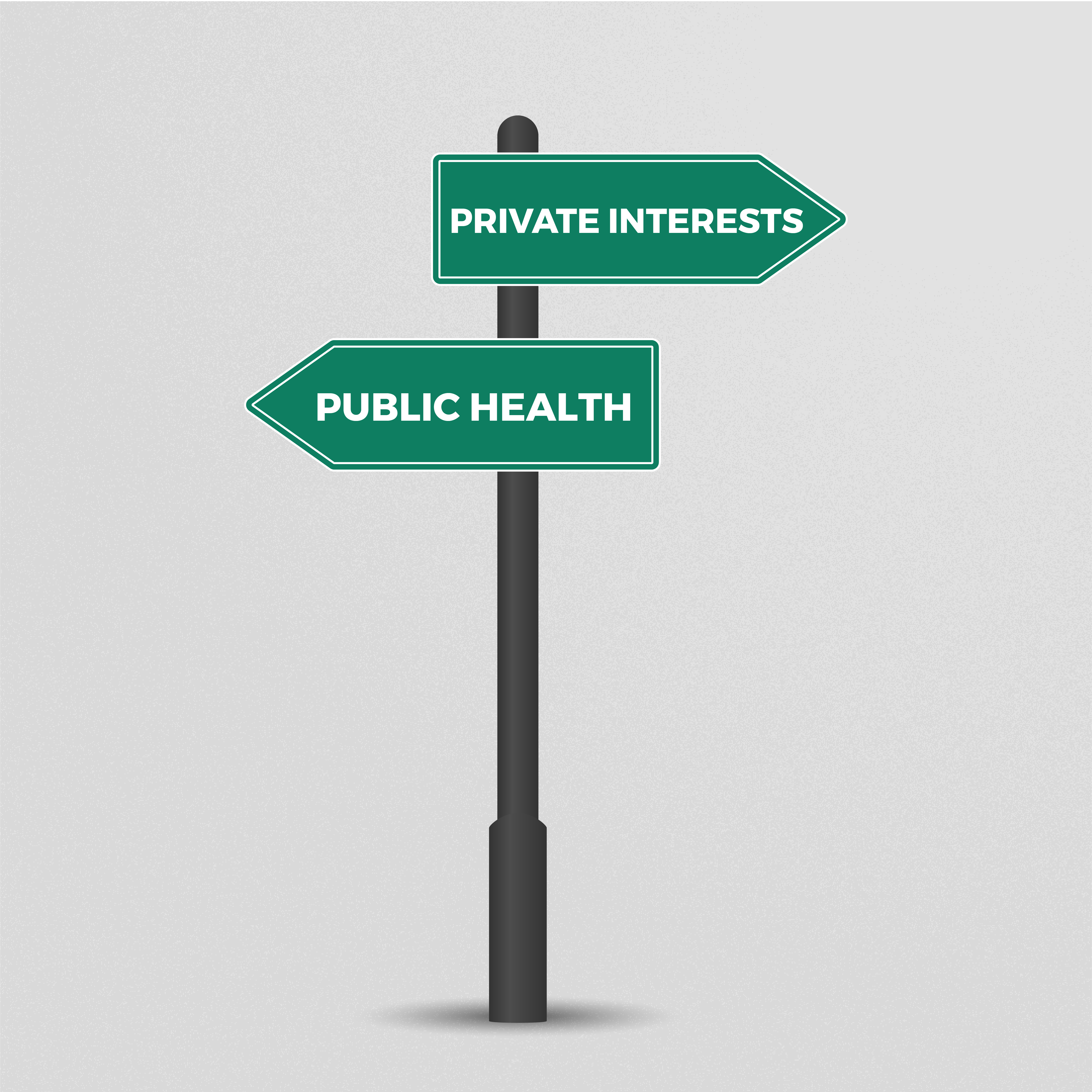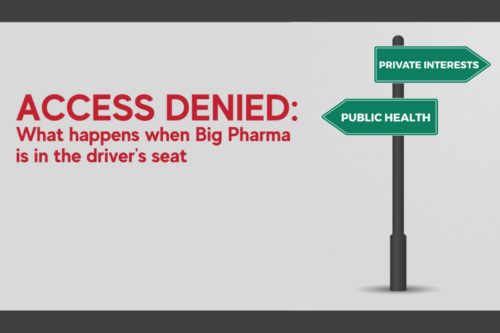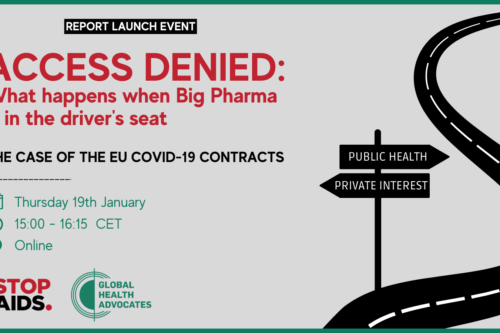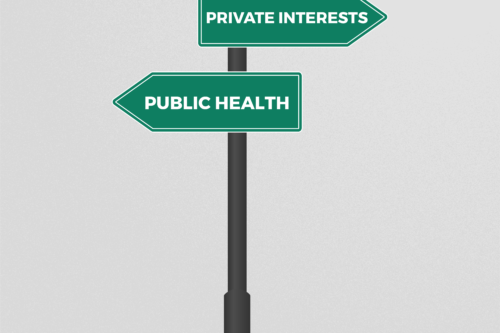Statement
Access Denied - one year on
24 January 2024
Together with STOPAIDS, Global Health Advocates commissioned a report series, exploring how a lack of transparency in the pharmaceutical industry and the European Union has harmed public health outcomes. Through legal and investigative research, the reports outlines the circumstances in which COVID-19 vaccine negotiations took place and explores the level of influence Big Pharma had in EU decision-making. Together, the learnings from these reports have informed a series of recommendations that decision-makers can implement to increase transparency and protect both public health and democratic spaces.







